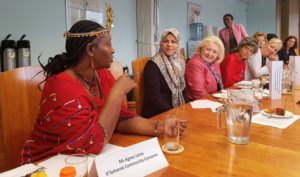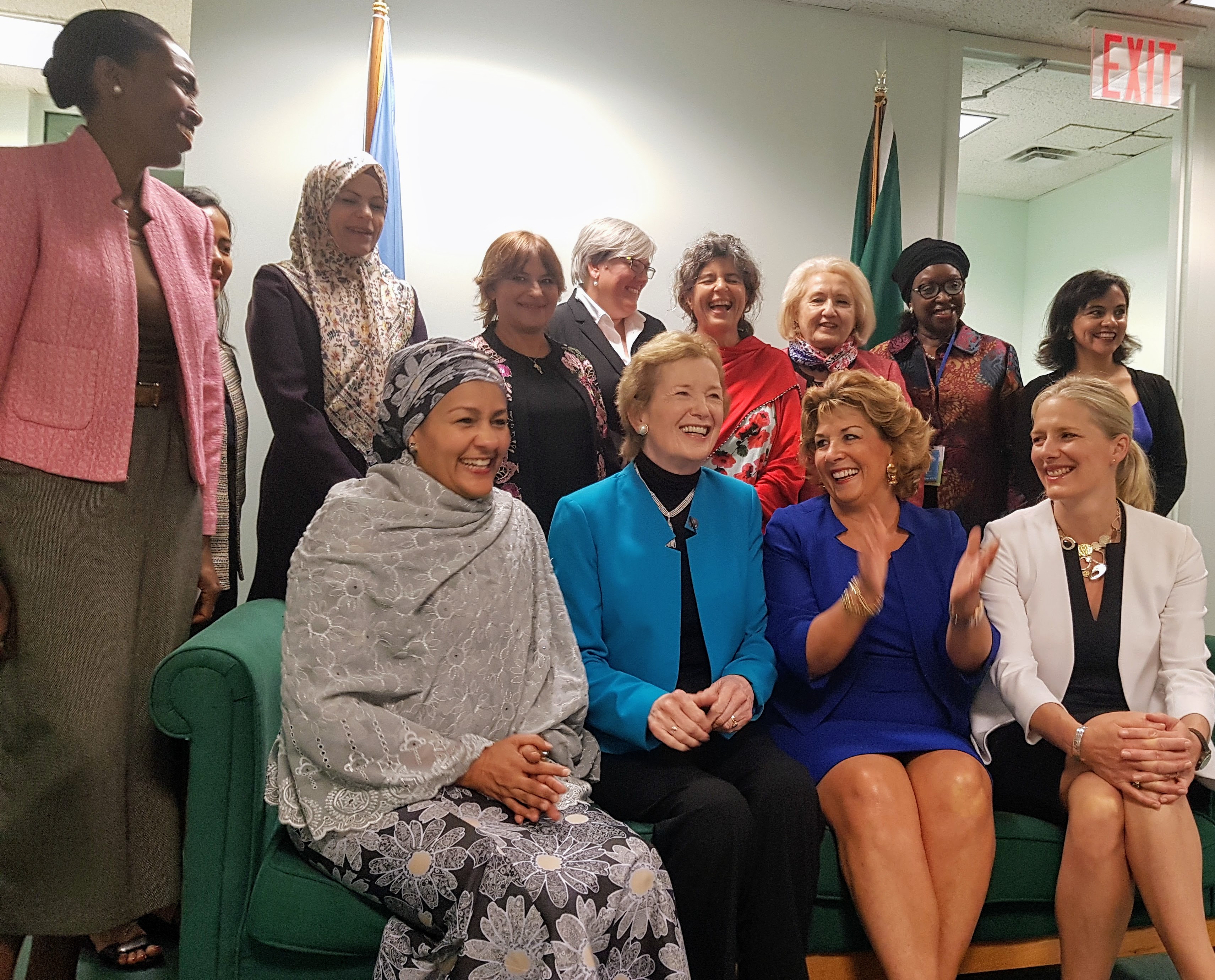Gender equality, women’s empowerment and women’s participation in climate action were on the agenda for the meeting of the Troika+ of Women Leaders on Gender and Climate Change held in New York on 20 September with the support of the Permanent Mission of Ireland to the United Nations.
Convened by the Mary Robinson Foundation – Climate Justice, the meeting of government representatives, UN agencies and academic institutions brought together women leaders to share information on meetings and initiatives to inform the Gender Action Plan under the UNFCCC and to ensure that women at all levels are enabled to participate in the decisions taken on climate action, be it mitigation, adaptation or resilience, which is essential to climate justice.
Irish Ambassador, Geraldine Byrne Nason, who co-hosted the meeting with Mary Robinson, welcomed the attendees and highlighted how the work of the Troika + is relevant to the Commission on the Status of Women, which the Ambassador will Chair in 2018, noting the theme is “Challenges and opportunities in achieving gender equality and the empowerment of rural women and girls”.
As the participation of grassroots women in climate policy decision-making is a focus of the work of the Troika+, Agnes Leina who is Executive Director and founder of Il’laramatak Community Concerns was invited to discuss her own experience of women’s empowerment through climate actions.

As a pastoralist from Baragoi, Samburu County, in Northern Kenya Agnes has participated in the COP and contributed to local and national discussions on climate policy in Kenya. Agnes gave an overview of what is happening in her community in relation to the impacts of climate change and how at the grassroots level there is a need for capacity building to engage in policy making. She highlighted how the Paris Agreement recognises traditional knowledge and said “as times change traditional knowledge also changes”. Agnes also highlighted her community’s issues with the Lake Turkana wind farm citing the lack of participation and consultation as undermining their rights in addition to the fact that the community will not benefit from access to the renewable energy that the project will generate.
The Troika+ members reaffirmed their commitment to ensuring the participation of grassroots women in climate policy decision making and pledged to focus on the areas of capacity building and financing for gender responsive climate policy in the coming year.
Related Links
Our work on gender and climate change
Policy Brief – Women’s Participation An Enabler of Climate Justice


